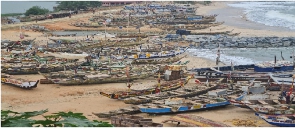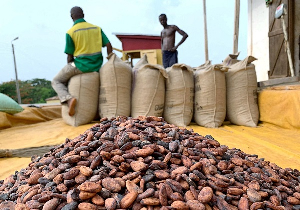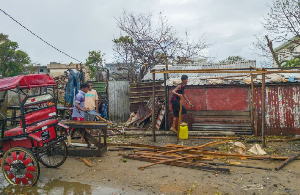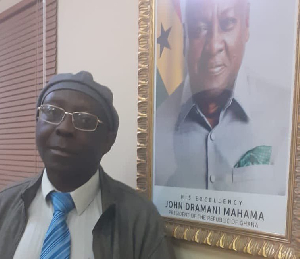Introduction
The Fisheries Act (2002), Act 625 underscores the need for the use of best scientific information for the management of the fisheries resource. Scientific data and information on the status of Ghana’s marine fisheries resources recommended implementation of immediate measures to ensure the recovery and rebuilding of depleted fish stocks to avoid collapse of the fisheries and consequently fishing industry.
The Ministry and the Fisheries Commission has since 2016 been implementing Closed Fishing Season as a fish stock recovery strategy with the following objectives
a. To reduce overfishing and the pressure on the stocks
b. To recover overexploited fish stocks and rebuild depleted fish species.
c. To replenish dwindling fish stocks.
This article is centered on the outcome of the 2022 Closed Fishing Season and why it is important to continue the implementation of closed season in 2023. Last year’s Closed Fishing Season was implemented as follows:
One (1) month Closed Fishing Season for Artisanal canoes and Semi-Industrial (inshore) Fleet for the period 1st – 31st July, 2022.
Two (2) months Closed Fishing Season for Industrial Trawl Fleet for the period 1st July - 31st August 2022.
Methods
To assess the impact of the 2022 closed fishing season on the marine fisheries resources, four (4) sampling sites were selected along the coastline: Keta (Volta Region); Tema (Greater Accra Region); Elmina (Central Region); and Sekondi (Western Region).Fish samples were bought for biological studies and data on fish catch and effort were collected at these sampling sites.
The data were collected on the two small pelagic species, Round sardinella and Anchovy, and the three demersal species, Red Pandora, Angola Dentex and Red Mullet. These two small pelagic are the most abundant small pelagic species while the three demersal species are the most important commercial demersal species.
Pre-closed season data were collected in April, May and June 2022 whilst post-closed season data were collected in August, September and October 2022.
Data collected at each sampling sites were recorded as
a. Daily catches of canoes and effort and the mean catch per canoe for the month estimated.
b. Length of individual fish species and mean length for month calculated and
c. Individual fish and gonad weights and the mean gonadosomatic index calculated
Results of 2022 Close Fishing Season

The above table implies that mean catch per canoe was higher after the Closed Fishing Season compared to the Pre-Closed Fishing Season.

It can be concluded from the results that catches of the canoes were higher after the Closed Fishing Season than the Pre-Closed Season (Table 1). Majority of the fish caught were adults and have spawned at least once in their lifetime (Table 2). Spawning before being caught contributes to replenishing of the fish stock.
Justification for The Continuation of Closed Fishing Season
The implementation of the Closed Season is guided by law, and it is in accordance with section 84 of the Fisheries Act 2002 (Act 625) which mandates the Fisheries Commission to declare Closed Seasons, including their duration, for fishing in specified areas of the coastal waters or the riverine system.
The marine fish stocks accounts for about 80% of fish production annually and therefore the backbone of the fishing industry. Currently, the marine fish stocks are overexploited, resulting in declining fish catches in recent times. If measures are not taken to reverse the trend, the fishing industry would collapse.
This would result in loss of jobs along the value chain, increase in poverty in fishing communities, loss of foreign exchange earnings to the country and threat to national food and nutritional security.
Continuation of the Closed Fishing Season would ensure consolidation of gains made in the rebuilding of the fish stocks from implementation of previous Closed Fishing Seasons. This would contribute to achieving the long-term objective of the Closed Season; that is recovery of overexploited fish stocks and rebuilding of the marine fisheries resources.
What it Means by Closed Fishing Season
Closed fishing season is a period where fishing activities ceases in order to reduce the pressure on stocks when the fishes are reproducing or laying eggs. Closed fishing season helps to protect the spawning or parent stocks by allowing the fish to lay their eggs to replace the lost ones due to fishing effort and other natural causes.
Reproduction for most species occurs in the open ocean and then, once hatched, the baby fish drift into the coastal zones and estuaries. Once they grow older and bigger, they return to the open ocean to the fishing grounds where they can spawn themselves or be caught by fishermen.
Sometimes the pressure of fishing can be so high that majority of the fishes do not grow to see adulthood and also never live to reproduce and replenish the stock. When this happens, it is called overfishing. Overfishing is similar to constantly withdrawing more money than you deposit into your account.
When this happens, the account will eventually run dry. So, linking this to fisheries the sea will be without fishes if we continue to fish without investing time into the reproduction of the fish.
This is why the Ministry of Fisheries and Aquaculture Development is confirming that this year Closed Fishing Season will start from the 1st -31st July 2023 for artisanal canoes and semi-industrial (inshore) fleet, while there will be Two (2) months Closed Fishing Season for industrial trawl fleet for the period 1st July – 31st August 2023.
Press Releases of Wednesday, 21 June 2023
Source: Fisheries Scientific Survey Division













